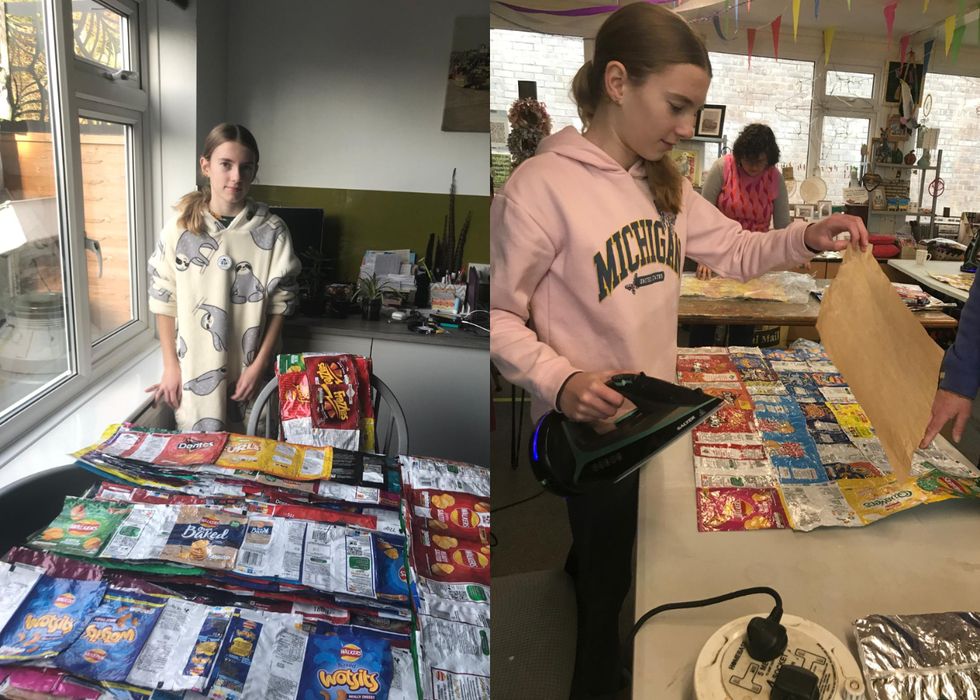
A 13-year-old who has made survival blankets for the vulnerable using crisp packets said she did it to “make a difference close to home”.
Savana Isles, who lives in Hastings, has made seven blankets, with each one being made from roughly 56 crisp packets, over the course of January to March, as a means of fulfilling the volunteering requirements for the DofE Bronze Award.
The blankets were made for Community Interest Company (CIC) Crisp Packet Project, which is based in St Leonards-on-Sea, in East Sussex, and creates items including survival blankets and bivi bags – sleeping bag covers – out of crisp packets and plastic waste.
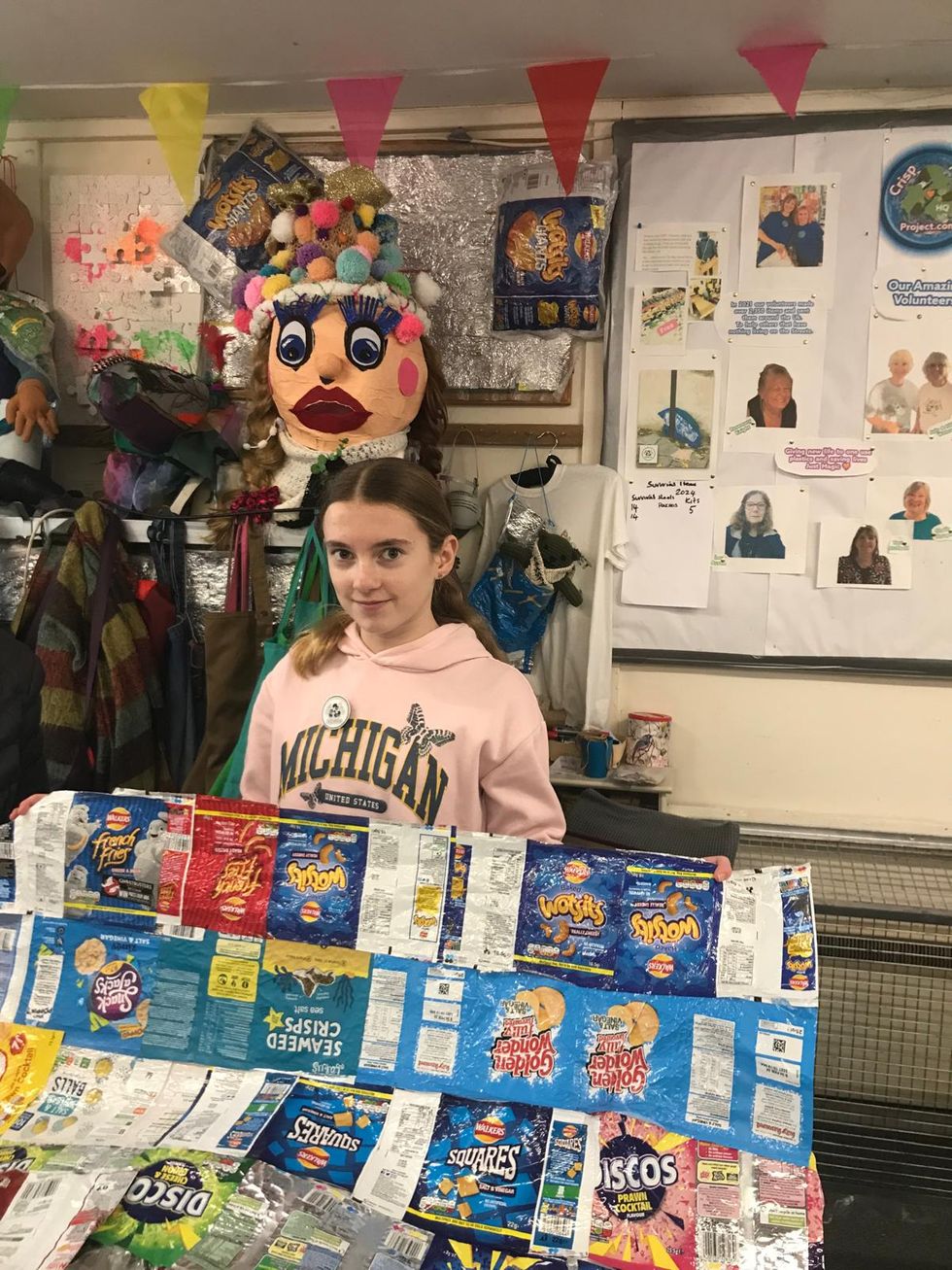
The year nine student at St Richard’s Catholic College in Bexhill, East Sussex, told the PA news agency: “I wanted to do something that would make a difference close to home”.
She said she was unaware that crisp packets could be used to make blankets prior to volunteering with the company.
“I didn’t actually know what you could do with crisp packets but once I went there, I saw what they could be made and it was very interesting,” she said.
Pen Huston, the company’s founder, told PA that to make the blankets, clean crisp packets are required, which should be opened in “landscape way” and overlapped by roughly a centimetre.
The 49-year-old added: “You then put your baking paper on top of that and it’s literally a one two with the iron.
“You do strips of four in a row and then once you’ve got your strips, you then join them all together into grids of four and keep going until you have made the blanket.
“All (the blankets) and our items are fused together with clear plastic waste from a sofa company, stopping this plastic going to landfill.”
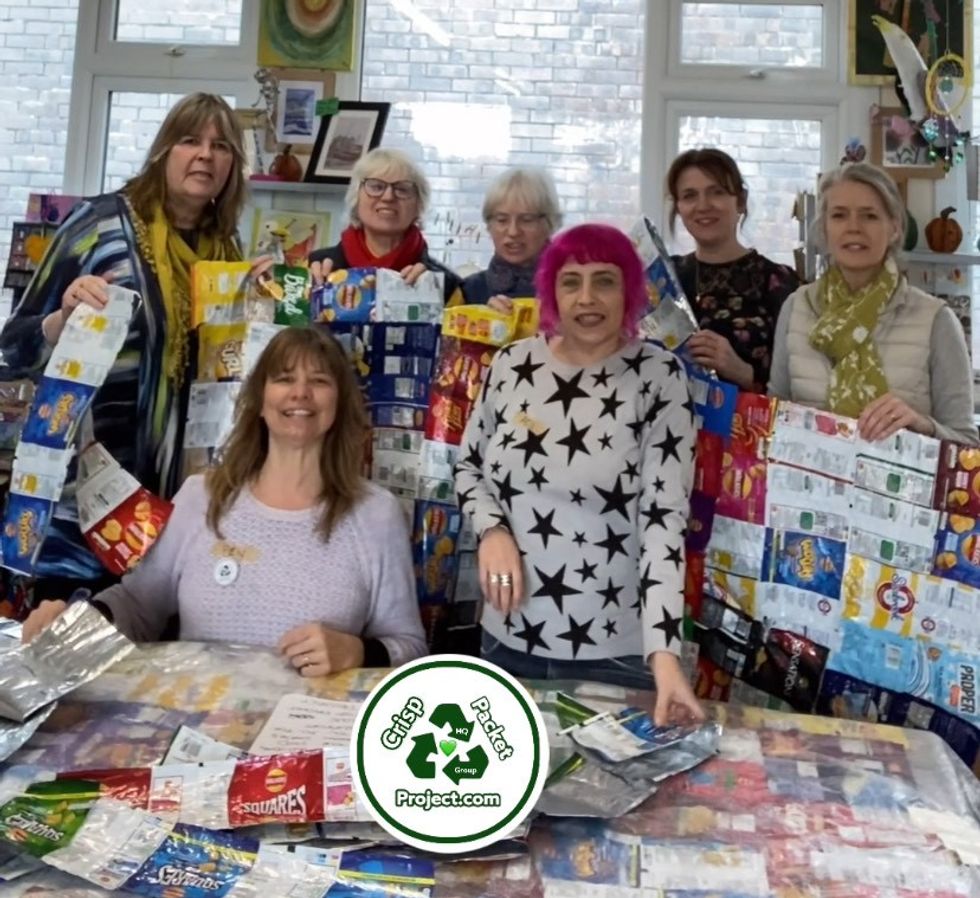
Savana said it was fairly “easy” to piece together the blankets once she was given a tutorial by Ms Huston, but added: “You have to be precise, so need to make sure the crisp packets are all the same size.”
Through word of mouth among family, friends and those in the local area, she collected hundreds of packets to use for the blankets, and also made use of packets given to Crisp Packet Project through donations.
She said her favourite part of the project was “seeing how many blankets we made”.
“It was also nice knowing that they were going to go out to people somewhere to help them,” she added.
Ms Huston said Savana took to the project like a “duck to water”.
“She came down with her father and mother and just cracked on making the crisp packets into strips on our two hour workshop,” she said.
“Then she took one of our bag sealer machines home and made loads and loads.
“She was so so good and her strips were so straight – very well done to her – and it was lovely seeing her mother and father there as well.”
A bag sealer machine is sometimes used to create strips of crisp packets in a row in place of an iron.
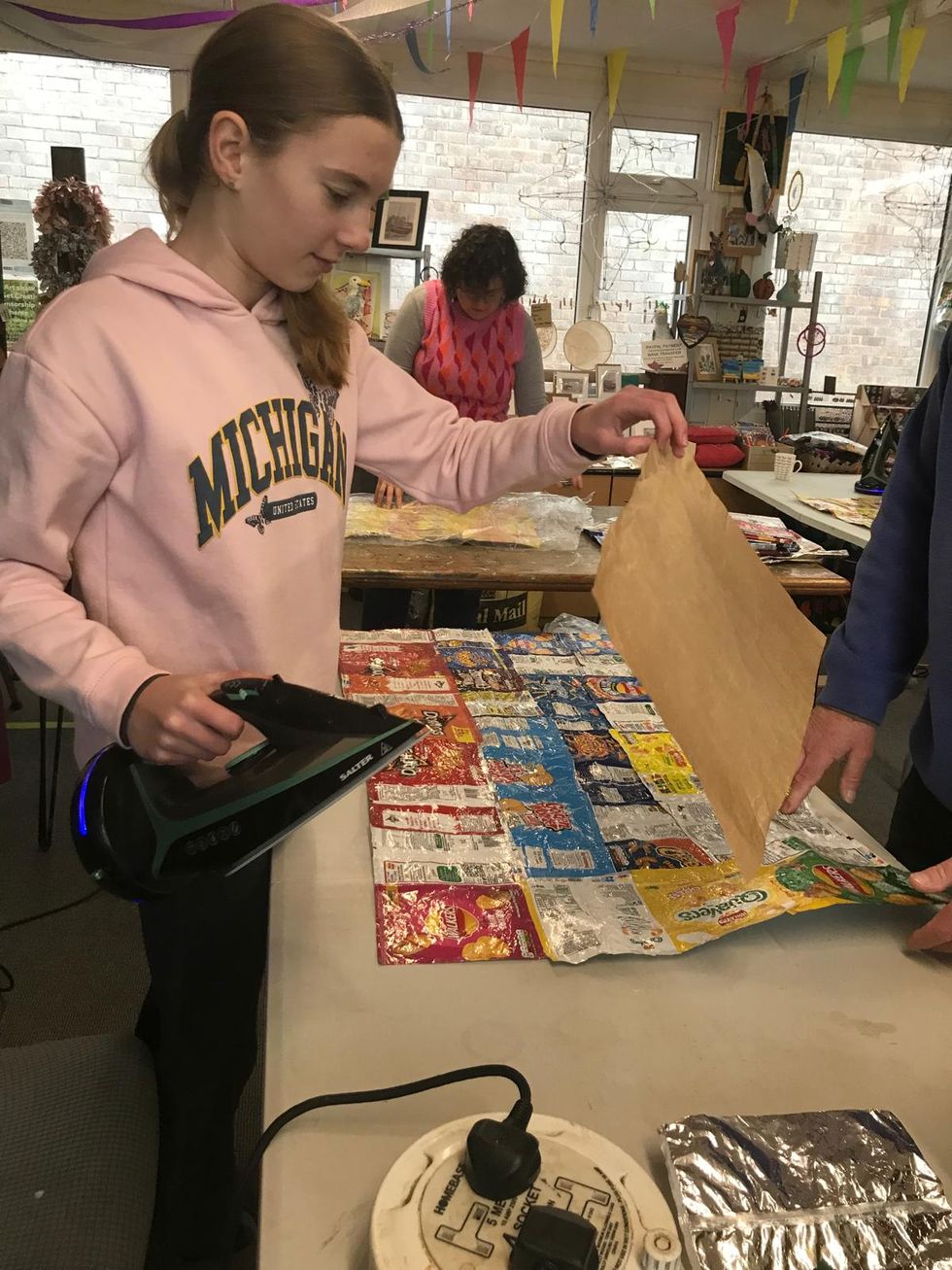
Recently, Savana’s blankets were given to the charity London Homeless Welfare Team.
Talking through the origins of the company, Ms Huston said an usual dream led to its inception.
“I was volunteering for a charity called Surviving the Streets UK in 2019 and I was wracking my brain for a few months on how I could make something to help the homeless because the charity didn’t have much funding to buy sleeping bags or blankets,” she said.
“In October, I had a dream at two o’clock in the morning that I was in a little green crisp packet and the next day, I started fusing 150 crisp packets together and made a bivi bag which I then gave out to homeless people on the streets.
“In November, Crisp Packet Project was founded and it has just really grown from there.”
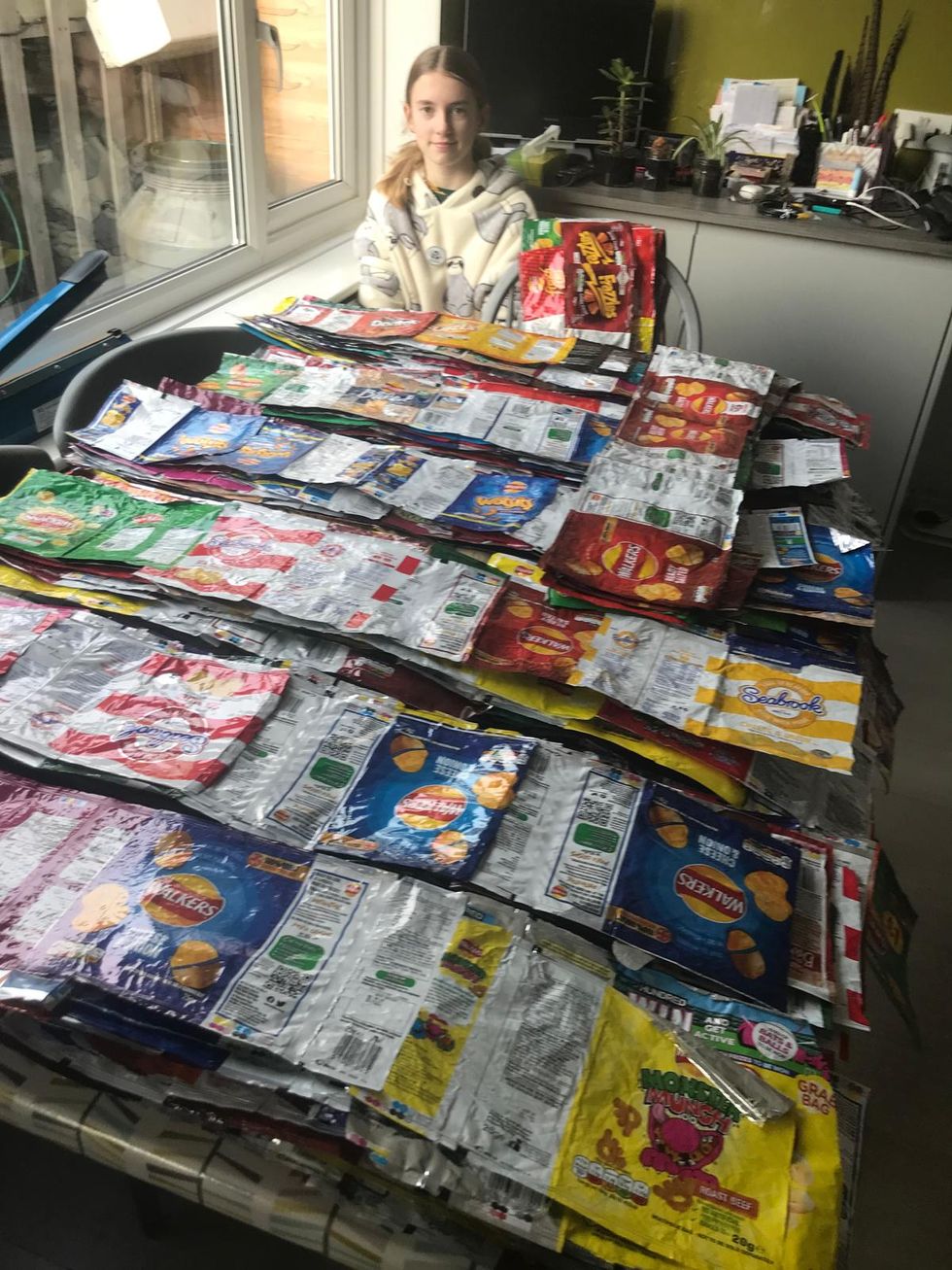
Since the company’s inception, it has made over 5,000 items which have been distributed to different outreach charities across the UK, and even Ukraine.
“Sussex Police have them in their custody units now,” she added.
“Plymouth Ukraine Medical Aid (PUMA) is amazing – we send them boxes of our survival items including a draw string bag and poncho made from landfill plastic and they take them to Ukraine.”
“We tend to stop sending them out when it gets warmer and start stockpiling because they tend to be more beneficial in colder times.”
The best way people can support the company is to make strips or grids of crisp packets, which it can make blankets from.
More information about Crisp Packet Project can be found here: https://crisppacketproject.com/












